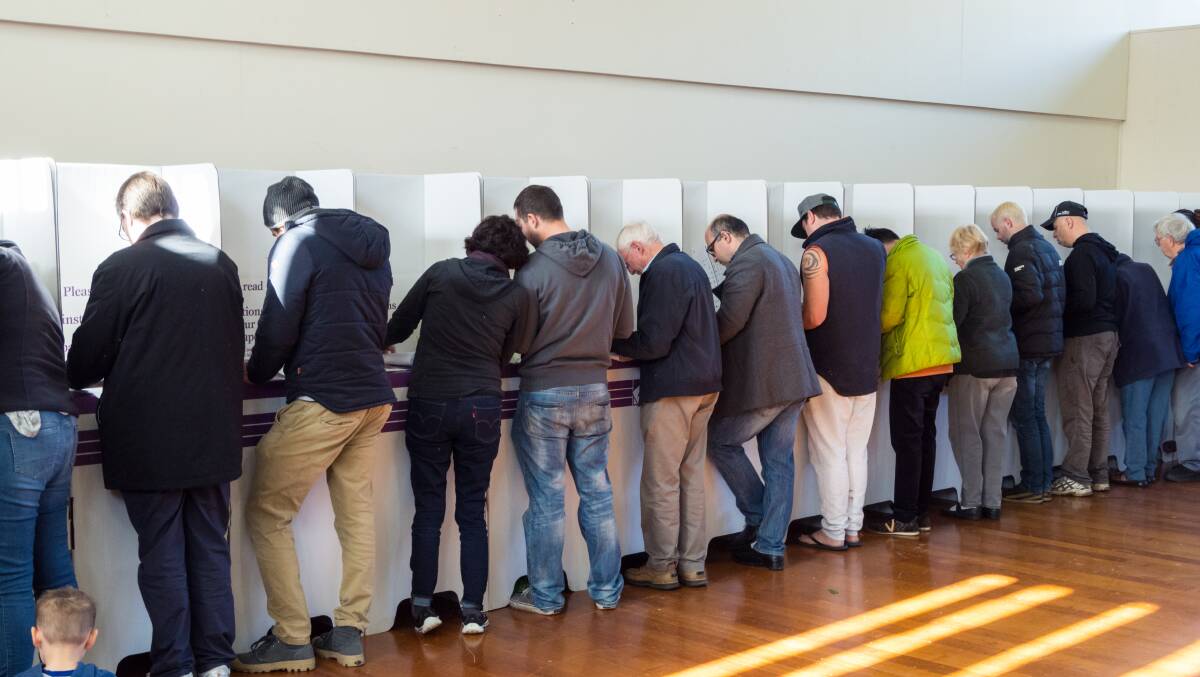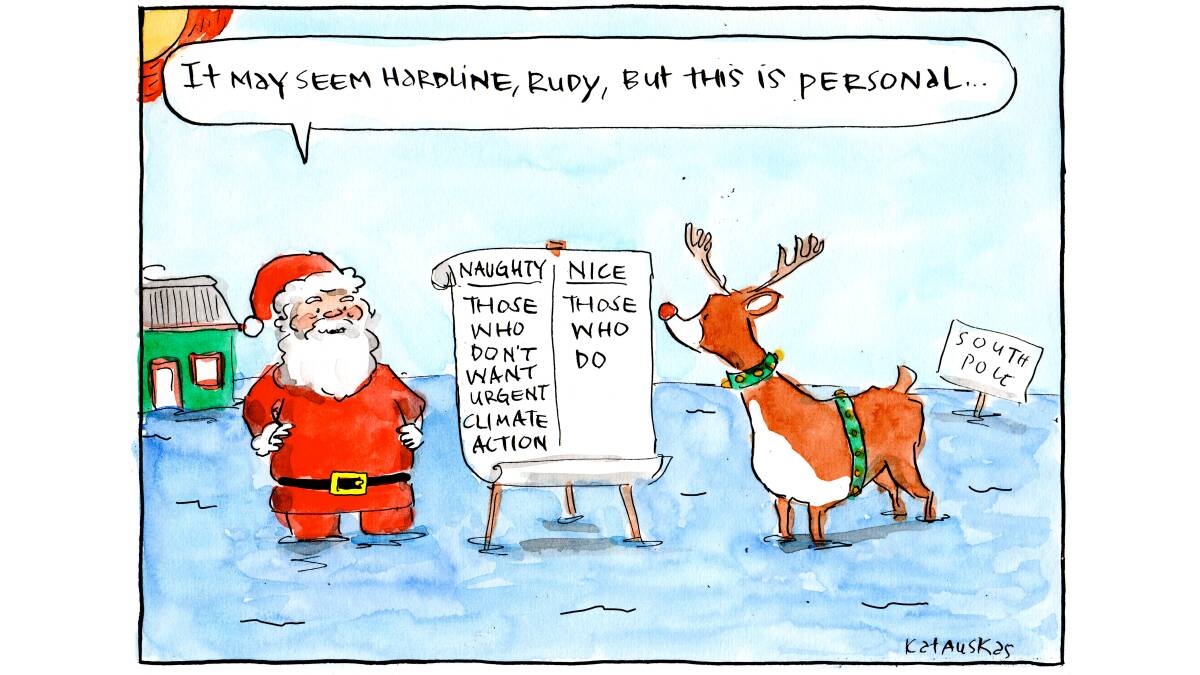This is a sample of The Echidna newsletter sent out each weekday morning. To sign up for FREE, go to theechidna.com.au
Subscribe now for unlimited access.
$0/
(min cost $0)
or signup to continue reading

Angry? You have no idea. The kid bristled with resentment. He wore a permanent sneer on his face and his white-knuckled fists always seemed clenched. He didn't hate the world but he despised those who controlled it. Idiots, all of them.
Grew long hair and pierced his ear because it made his parents uncomfortable. Smoked. Didn't like the way beer made him burp but loved the buzz it gave him. Pinned badges on his school uniform calling for whales to be saved and uranium mining to end because it annoyed the principal and afternoon detentions gave him the martyrdom he craved.
He was 16 years old and he seethed over the injustice of it all - the plundering of earth's limited resources, the destruction of natural habitat, the unfairness of paying adult prices at the movies, the frustration of being taught to passionately kiss by that big-breasted girl down the street who, despite his constant declarations of undying love, stubbornly refused to proceed to second and third base.
He was smug, sanctimonious and insufferable. Can't say he's matured that much over the past 40-odd years, either. But surely giving him the right to vote back then wouldn't have hurt. Might have helped lighten the unbearable weight of that chip on my young shoulder.
But it was the 1970s. The minimum Australian voting age had, incredibly, only just been reduced from 21 to 18. For decades it had been perfectly reasonable to send young kids to war and return them home in body bags without ever having had a say in the democracy they supposedly died defending.
Now a debate is underway to lower the voting age to 16. The Greens and Independent MP Monique Ryan will take up the cudgels early next year on behalf of Australia's estimated 600,000 16 and 17-year-olds.
A successful parliamentary bill would make it mandatory for them to vote, but without the threat of a fine if they failed to do so.
Because it's all about politics, self-interest is naturally at work here. Younger people, traditionally more liberal and determined to right the world's wrongs, are still years from discovering how time grinds away at idealism the way wind and rain wears down stone.
The sudden influx of more than half a million new voters would be a significant boost for the current wave of teal independents and Greens. Labor, too, could experience a fillip. But don't count on support for the proposed bill from the conservative parties, still trying to process the yawning gulf between their policies and the attitudes of middle Australia.
It's not difficult to understand. Much of the shift in Australia's attitude toward climate change has been driven not by political and business leaders but by a vocal and heavily invested young generation. Aided by the speed and influence of social media, it was their passion that dragged an older generation toward a greater understanding about the threat of global warming.
Expect the arguments against lowering the voting age to replicate those in 1973 when the Whitlam government gave 18-year-olds the vote. Immature teenage brains are still forming, it will be explained. It's why we don't allow them to purchase alcohol. The young are too prone to peer pressure. They lack real-life experience. They are susceptible to outside influences and naive about our political system.
You could say much the same thing about any age group of voters in this country given the dramatic and well-recorded decline in the public's faith in our political system in recent years.
Wouldn't giving younger people a vote heighten their awareness and interest in national affairs? The evidence from the growing number of nations that already give adolescents a vote is overwhelmingly positive. The Scottish independence referendum eight years ago saw more 16 and 17-year-olds vote than those two and three years older.
We already lay plenty of responsibility on those who are 16. Most states recognise that age as mature enough to decide when to have sex and even start a family. They can get behind the steering wheel of a 1500kg vehicle and enlist in the military. They can leave school, get a job and pay taxes (more than $50 million in direct tax revenue is generated by those under 18).
It wasn't until the start of the 20th century that women were finally allowed to vote. It took until 1984 before Aboriginal and Torres Strait Islander people were welcomed into our compulsory voting system.
It's time we gave the same opportunity to our 16 and 17-year-olds while they're still young enough to believe they can change the world.
At the very least it might make them easier to live with.
HAVE YOUR SAY: Should 16 and 17-year-olds be allowed to vote? Were you a young radical who became an old conservative? What causes did you believe in? And do we need compulsory voting at all? Email us: echidna@theechidna.com.au
SHARE THE LOVE: If you enjoy The Echidna, forward it to a friend so they can sign up, too.

IN CASE YOU MISSED IT:
- Independent ACT senator David Pocock has called for Environment Minister Tanya Plibersek to get the backing needed to reform Australia's environmental laws, while expressing disappointment her plans don't include a "climate trigger" for new development approvals. The key crossbencher's initial reading of the government's response to the Samuel review comes as the Coalition and the Mining Council of Australia criticised plans to extend the powers of a national Environment Protection Agency as providing uncertainty for business which may slow investment.
- Australians looking to travel to Indonesia have been officially put on warning after the Southeast Asia country passed controversial new laws this week. The Department of Foreign Affairs and Trade has updated its travel advice to Indonesia, which includes popular holiday destinations like Bali, to "exercise a high degree of caution". The change comes in response to the Indonesian government passing revisions to its criminal code, which now bans sex outside marriage for locals and travellers alike.
- With the cost of repairing Australia's flood- and rain-damaged roads expected to top $3.8 billion, experts are calling for an urgent rethink of road construction, maintenance and funding. Ongoing, widespread wet weather has devastated road networks across Australia, leaving businesses and communities counting the costs. Australian Local Government Association president Linda Scott said rebuilding these roads to current standards would only cost Australian communities more in the long term. The association represents the country's 537 local government councils, and she said thousands of kilometres of roads across NSW, Victoria, South Australia and Queensland have been severely damaged and in some cases washed away.
THEY SAID IT: "You wouldn't let your grandparents pick your playlist. Why would you let them pick your representative who's going to determine your future?" - Barack Obama
YOU SAID IT: Our shameful record of species extinction and what needs to be done to reverse it.
Sharon says: "Thank you, Echidna. This needs to be said, again and again. As a non-native I was appalled at the damage inflicted on the landscape by developers and the fact that there is no legislation in place to protect vegetation - or what there is never sees the light of day. Simple tree preservation orders and mandatory landscaping requirements for developments would be a start. Please keep up the dialogue."
Sue recalls her encounters with an echidna: "I used to own a fishing lodge at Old Adaminaby, NSW. It is a really lovely location. I had taken a friend with me one weekend as she rarely managed to leave Canberra and we caught sight of the echidna which resides under the house as it scurried away down the hill. She had never seen an echidna. 'Do they really have those cutesy eyes you see in paintings?' she asked. You can't really tell that from behind, which is all we had seen of it. But on the way back home, before we even got to the highway, I pulled over to the side of the road because - big build up please - there was an echidna waddling towards us, and this time my friend was able to see the echidna front on, cutesy eyes and all."
Paul says: "Sadly until we can develop a no-growth society (an economist's anathema) we will continue to destroy the environment our wildlife requires. If you want to keep Australia beautiful, depopulate."
Jenny's on the same page: "You mentioned the housing estates up and down the coast that are destroying habitat. Yes! There is a direct correlation between population growth and loss of species. We lose about one mammal for every extra million humans added to the continent."
Ross, however, sees it differently: "Given that palaeontologists have told us for years that 90 per cent of all fauna and flora that has ever existed became extinct before modern mankind came on the scene what does it matter if a few more become extinct over coming years? By all means put resources into saving the platypus, the koala and the brown-headed white tit but leave the rest to succeed in the survival of the fittest."
Joan shares an encounter with wildlife: "I watched in amazement as a hawk swooped in on a colourful parrot and carried it up into the sky as it struggled vigorously and squawked noisily too much for the hawk. It flew down to a nearby shallow 'puddle' and stood in the water till the parrot was drowned, then flew away with the limp dripping bird still clutched in its claws."
Kate says: "I live on the Northern Beaches [near Sydney] and when I was a kid it was not uncommon to see koalas further up the peninsula. They've been gone for decades now. Our local member James Griffin also happens to be the NSW Minister for Environment. Under his watch Lend Lease is building thousands of homes on the land of the last remaining healthy and breeding koala colony in NSW near Campbelltown. The state government says it is investing $190 million in saving the koala. It's nonsense! Lend Lease and the government will not even commit to building underpasses for koalas to cross busy Appin Road down there. This is despite the government acknowledging 10 "hot spots" for koala road kill. And this is also one of the urgent recommendations of the chief scientist and engineer report. Griffin says he will encourage private landowners to plant 250,000 thousand saplings for the koalas. Koalas don't have another 30 years to wait for these saplings to mature to become their food and shelter! So you see, Echidna, it's all smoke and mirrors when you read the details."


